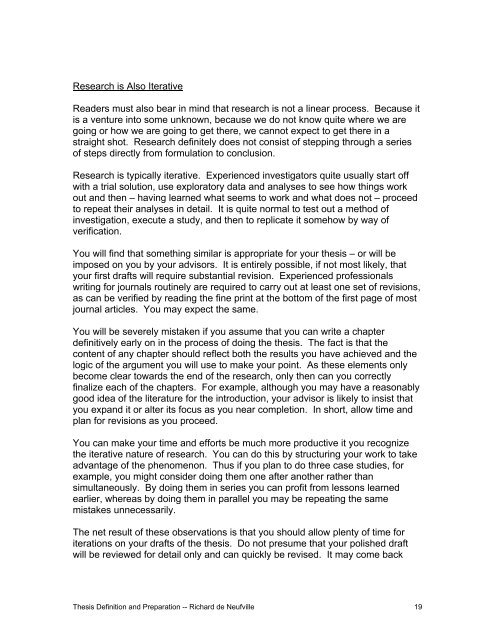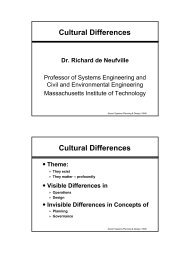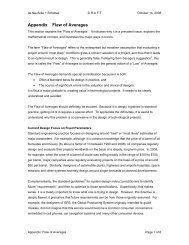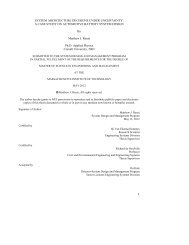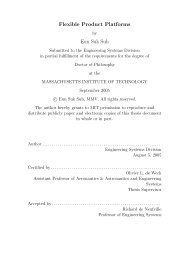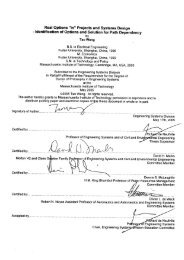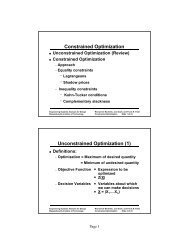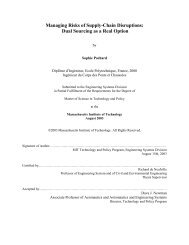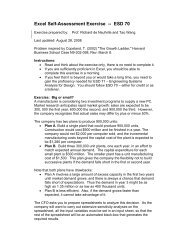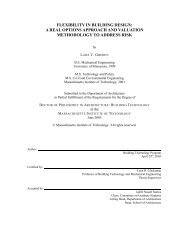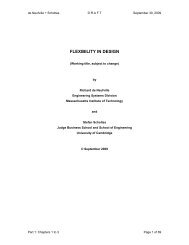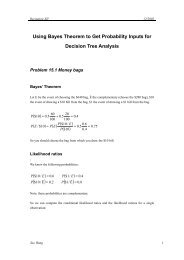Richard de Neufville's TPP SM Thesis Manual - Title Page - MIT
Richard de Neufville's TPP SM Thesis Manual - Title Page - MIT
Richard de Neufville's TPP SM Thesis Manual - Title Page - MIT
- No tags were found...
Create successful ePaper yourself
Turn your PDF publications into a flip-book with our unique Google optimized e-Paper software.
Research is Also IterativeRea<strong>de</strong>rs must also bear in mind that research is not a linear process. Because itis a venture into some unknown, because we do not know quite where we aregoing or how we are going to get there, we cannot expect to get there in astraight shot. Research <strong>de</strong>finitely does not consist of stepping through a seriesof steps directly from formulation to conclusion.Research is typically iterative. Experienced investigators quite usually start offwith a trial solution, use exploratory data and analyses to see how things workout and then – having learned what seems to work and what does not – proceedto repeat their analyses in <strong>de</strong>tail. It is quite normal to test out a method ofinvestigation, execute a study, and then to replicate it somehow by way ofverification.You will find that something similar is appropriate for your thesis – or will beimposed on you by your advisors. It is entirely possible, if not most likely, thatyour first drafts will require substantial revision. Experienced professionalswriting for journals routinely are required to carry out at least one set of revisions,as can be verified by reading the fine print at the bottom of the first page of mostjournal articles. You may expect the same.You will be severely mistaken if you assume that you can write a chapter<strong>de</strong>finitively early on in the process of doing the thesis. The fact is that thecontent of any chapter should reflect both the results you have achieved and thelogic of the argument you will use to make your point. As these elements onlybecome clear towards the end of the research, only then can you correctlyfinalize each of the chapters. For example, although you may have a reasonablygood i<strong>de</strong>a of the literature for the introduction, your advisor is likely to insist thatyou expand it or alter its focus as you near completion. In short, allow time andplan for revisions as you proceed.You can make your time and efforts be much more productive it you recognizethe iterative nature of research. You can do this by structuring your work to takeadvantage of the phenomenon. Thus if you plan to do three case studies, forexample, you might consi<strong>de</strong>r doing them one after another rather thansimultaneously. By doing them in series you can profit from lessons learne<strong>de</strong>arlier, whereas by doing them in parallel you may be repeating the samemistakes unnecessarily.The net result of these observations is that you should allow plenty of time foriterations on your drafts of the thesis. Do not presume that your polished draftwill be reviewed for <strong>de</strong>tail only and can quickly be revised. It may come back<strong>Thesis</strong> Definition and Preparation -- <strong>Richard</strong> <strong>de</strong> Neufville 19


